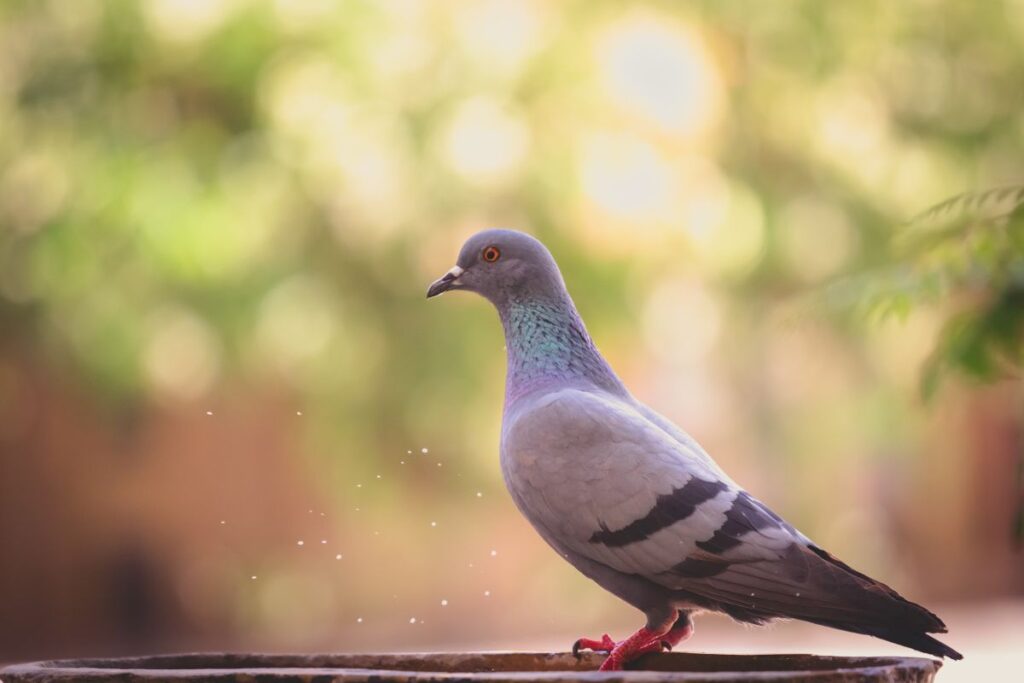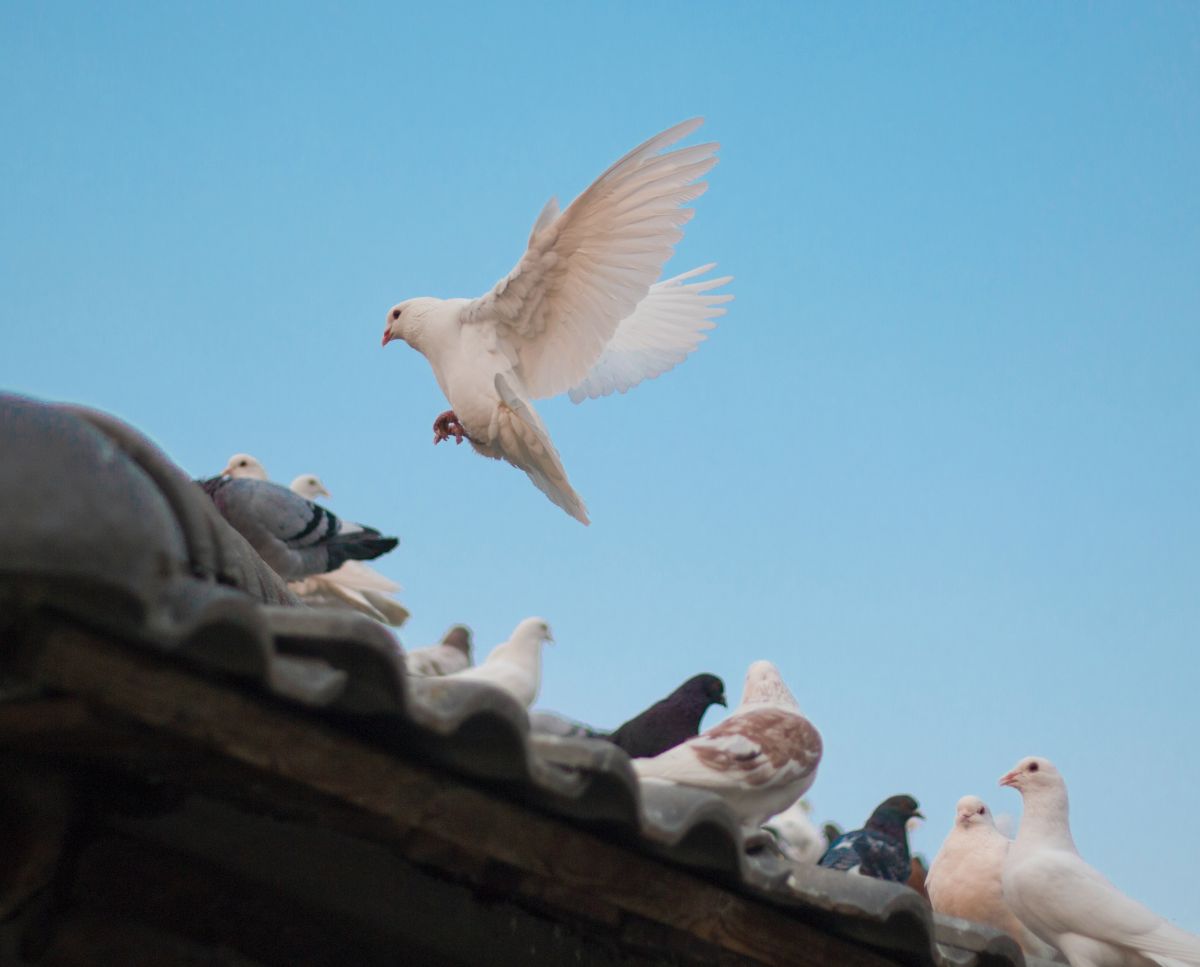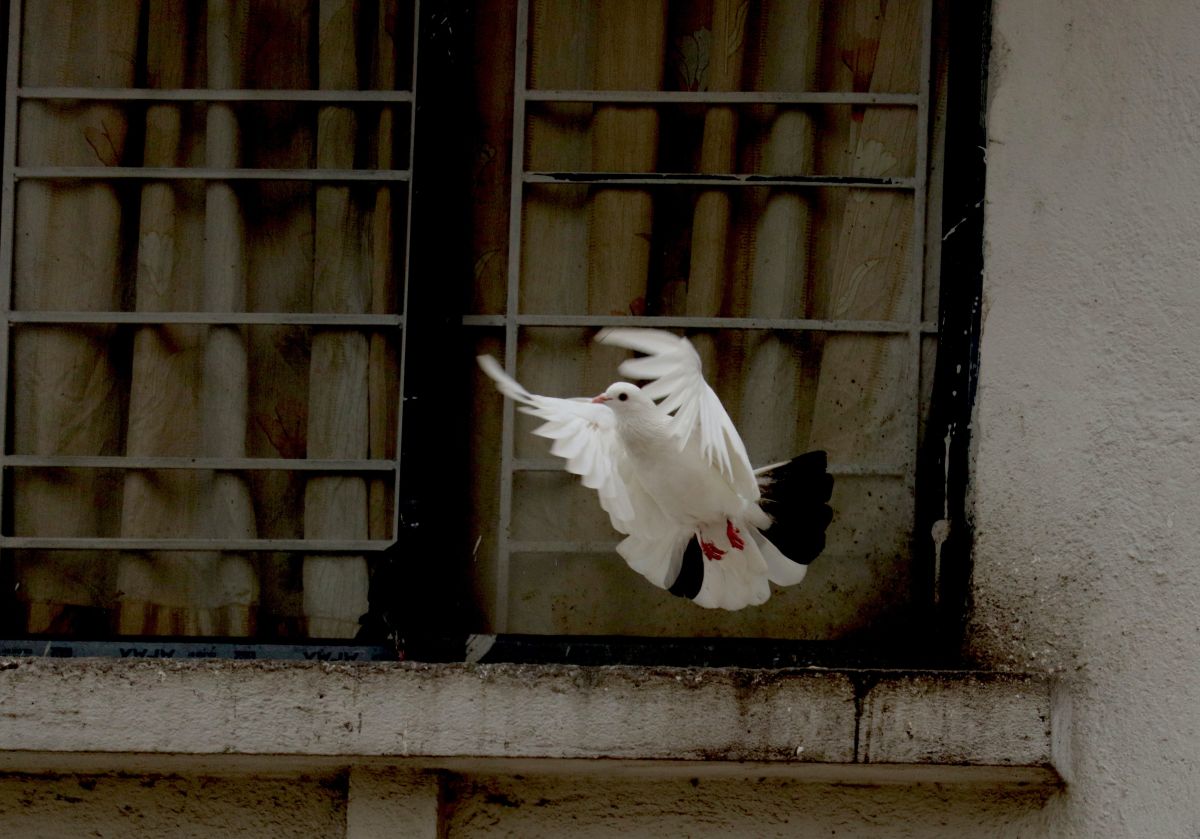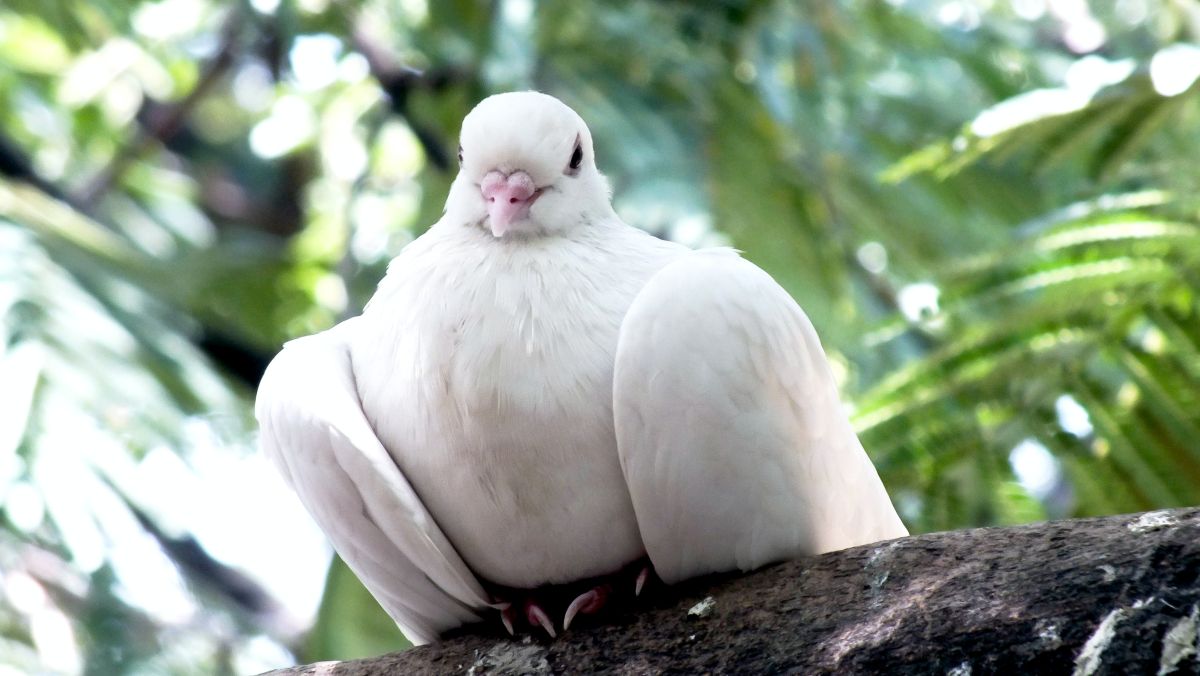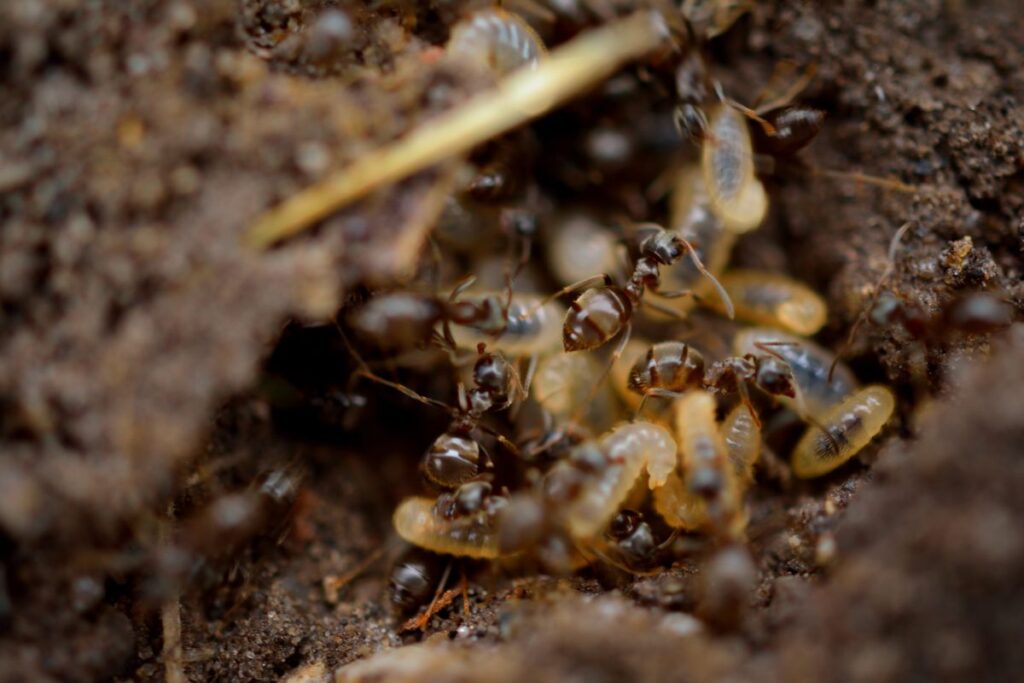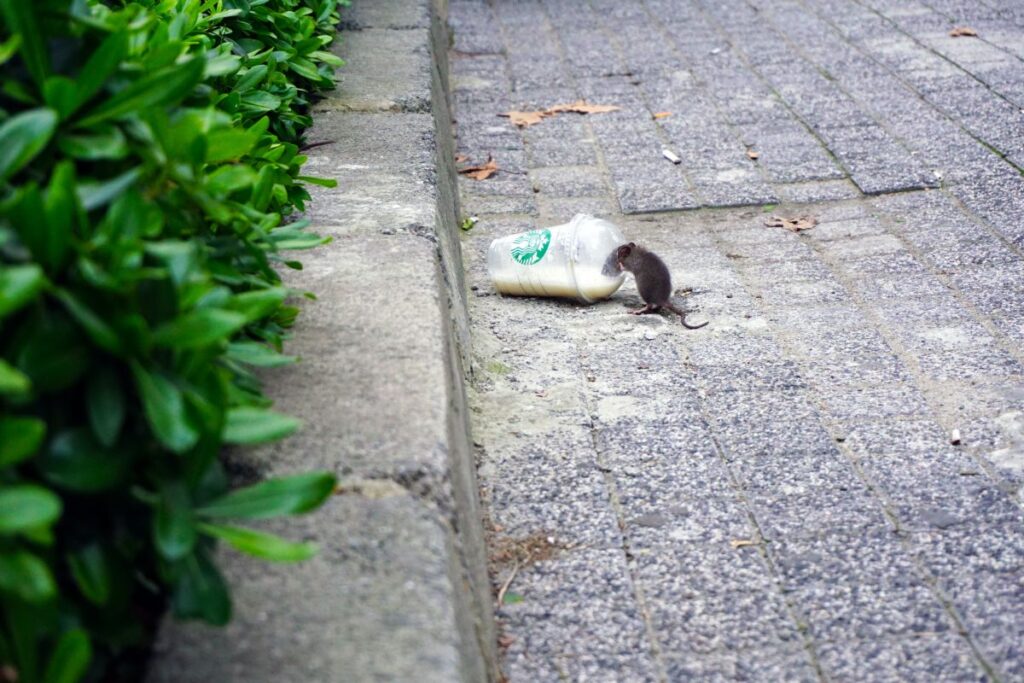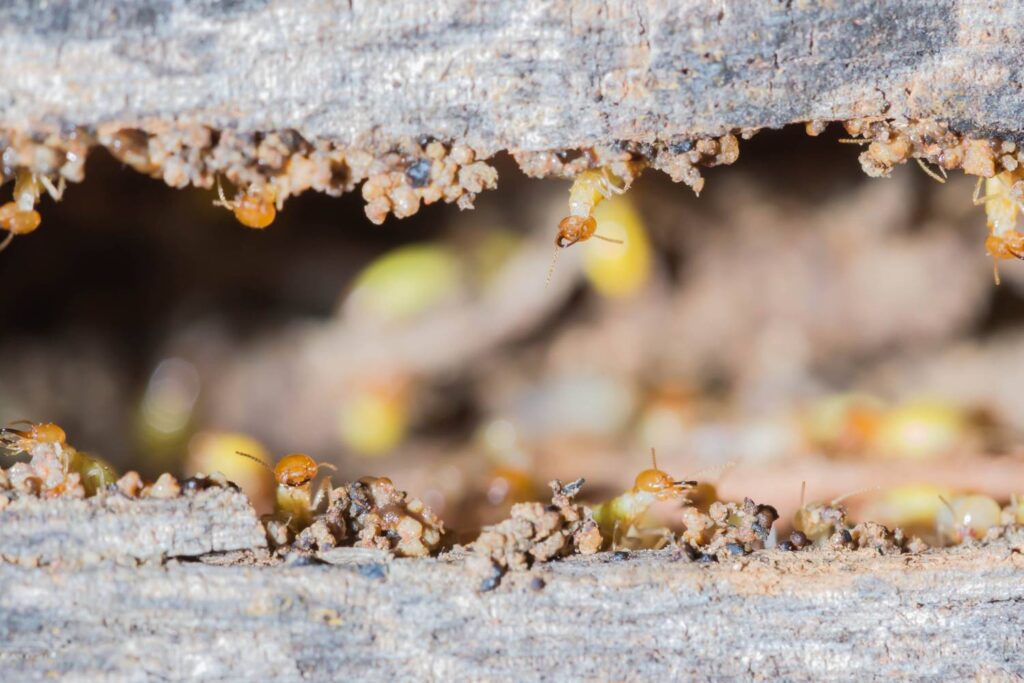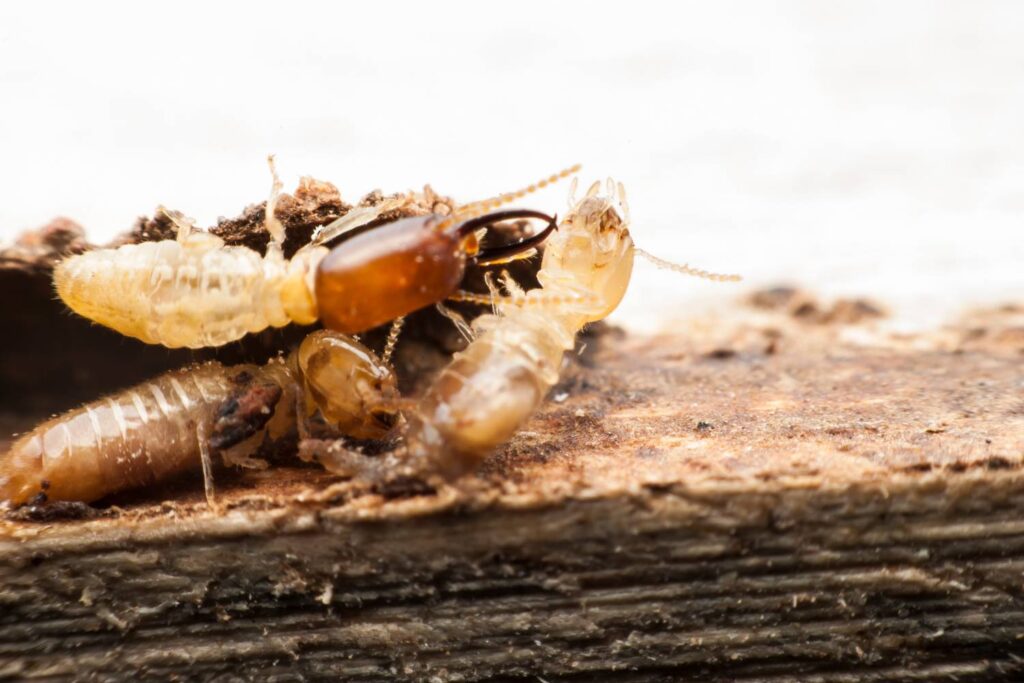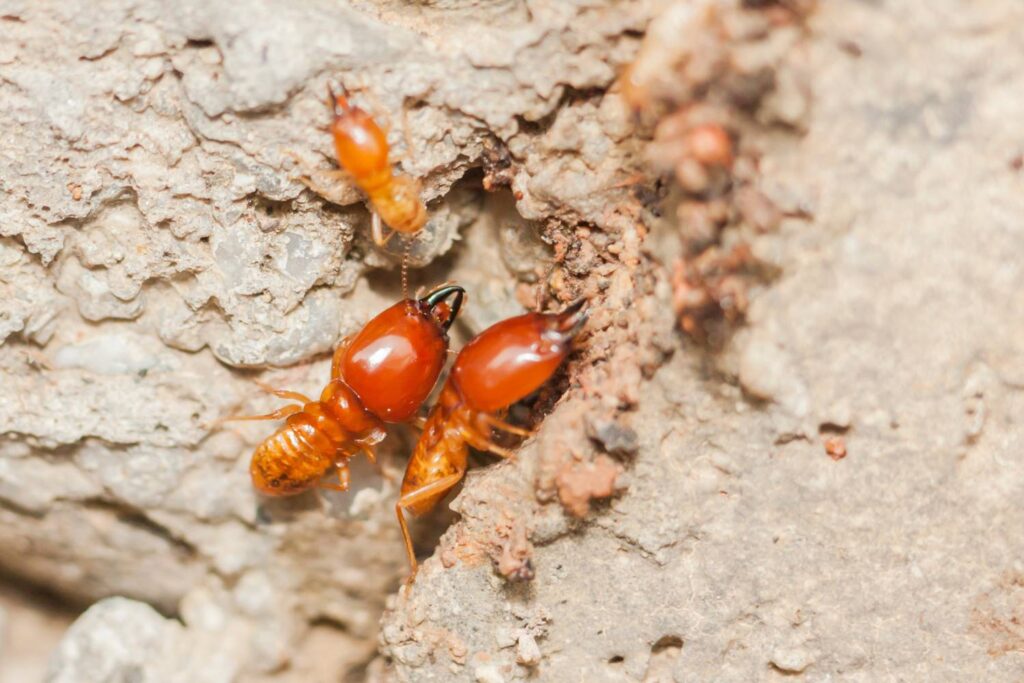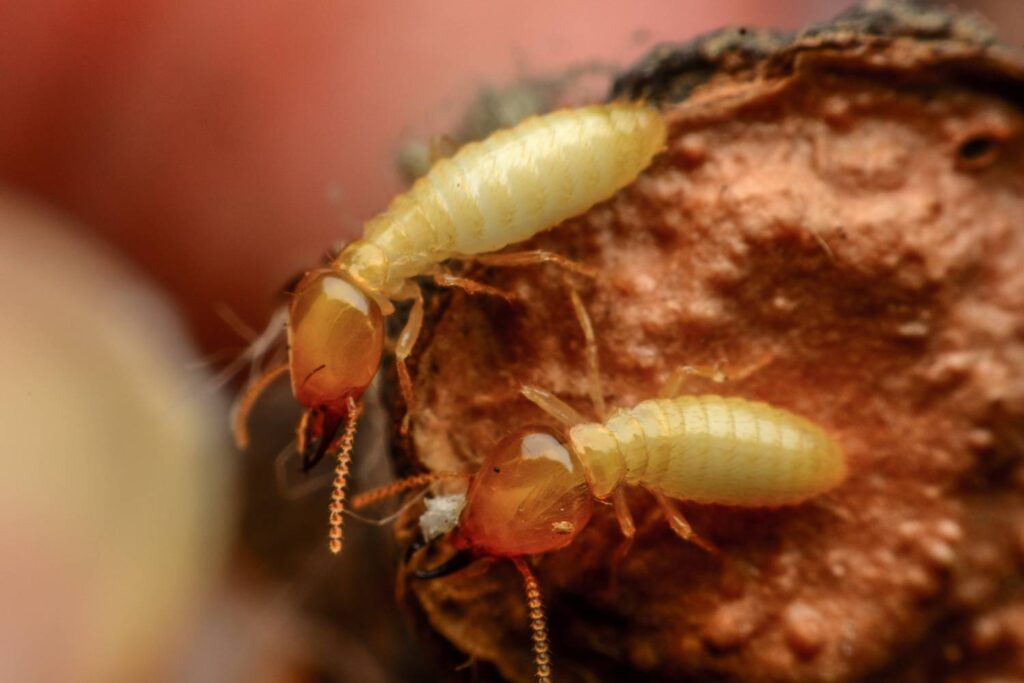Many individuals, especially city dwellers, find pigeons to be an annoyance. These birds can be a nuisance because of their destructive habits, their foul droppings, and the diseases they carry.
They also contribute to noise pollution, which can be an issue for adjacent residents and businesses. Pigeons are notoriously hard to eradicate because they are resilient and quick to adjust to new environments.
If you seek a pest control professional who can help you eliminate those annoying creatures, All Pests is the company for you. Several tried-and-true strategies for pigeon control are outlined in this article to assist you in finally getting rid of those annoying birds.
You'll discover all you need to know in this post, whether you want to install pigeon spikes, use bird netting, or try something else. Now that you're here, you may want to know how to get rid of pigeons to relax in peace.
What Are The Types Of Pigeon Problems?
People may experience a wide variety of pigeon-related issues, such as:
Nesting
Pigeons are notorious for inflicting costly repairs to buildings when they choose to make their nests there. This may cause water leaks and other problems that are difficult and expensive to fix.
Droppings
Pigeons produce a lot of droppings, which can pile on buildings and make them look dirty and smell bad. In addition, diseases that can be transmitted to people can be found in pigeon poop, making it a potential health danger.
Noise
During courtship, pigeons can make a lot of rackets. In addition, their cooing and wing flapping can be exceedingly annoying, especially if they nest near people's homes.
Aggression
When pigeons feel threatened, especially while nesting or guarding young, they can become aggressive. This can be an issue for those who live or work close to pigeon lofts.
Property Damage
Pigeons are destructive pests that may gnaw through wood, insulation, and other building components. They could also ruin your garden or harvest.
Health Risks
Cryptococcosis, histoplasmosis, and salmonella are only some diseases that can be transferred to humans by pigeons. In addition, pests like cockroaches and rats can be drawn to areas where pigeons have defecated.
Methods For Quickly Eliminating Pigeons
We can't deny that pigeons are a health risk due to their corrosive droppings, aggressive nature, and propensity to spread disease. Unfortunately, they roost in every available space in and around your garden. But all hope is still possible; if you seek information about pigeon control, you have come to the right place. The best pigeon-control techniques that can be used immediately at home are outlined here.
Ultrasound Pigeon Repeller
Birds have an exceptional sense of hearing, which is essential for their communication and survival. However, this sensitivity to sound can be used to deter pigeons from a property. One effective solution is the ultrasound bird repeller, which emits sounds that mimic distress calls and predators.
This device is customisable, allowing users to blend different recorded sounds to create a more natural effect. Birds within a square mile of the device can hear it, so it's important to place it high up for the best sound quality. Some pigeon control devices emit sounds at frequencies that are inaudible to humans but effective against pigeons.
It's important to note that using noise to scare away birds requires patience and consistency. The Bird Ultrasound Bird Repeller should be used every day for weeks to ensure that any pigeons near the property hear the noises and learn to associate the area with danger. Over time, they will eventually avoid the property altogether.
Install A “Scare-Pigeon”
Raptors like hawks and falcons, are natural predators of pigeons. Scare pigeons can be a useful alternative to using these birds of prey to keep pigeons away from your property. One effective way to deter pigeons is by using a realistic scare pigeon that looks and sounds authentic.
It's best to use a scared pigeon that moves unpredictably or emits sounds similar to those of raptors. To avoid pigeons realising that the scare pigeon is not a threat, it's essential to move it around frequently. By doing so, pigeons will continue to believe that they are in danger, and they'll be deterred from returning to your property.
The head of this realistic owl figurine can be turned using solar power. It works well to frighten away annoying birds because it sounds so much like an actual owl pursuing its surroundings.
Since this scare pigeon is frail, you should anchor it so it does not blow over in the breeze.
Fill the figure with sand via the bottom hole to do this. The figurine's included stopper can be used to ensure a tight closure. Instead, You could use a 1-and-a-half-inch PVC pipe fastened to a heavy piece of wood.
Pigeons Can Be Deterred By Reflecting Surfaces.
Do pigeons live on your roof and mess up your house with their droppings? Look for shiny objects in your home to deter birds without breaking the bank. Most birds will avoid you if you shine your lights at them. The prism effect disorients birds because their eyes react differently.
You already have some of the necessary materials around your house or can pick them up at a discount from your local department store. Some common options are used compact discs, small mirrors, strips of aluminium foil, foil balloons, and reflective tape for use in the great outdoors.
Suspend them from a hook and place them in roosting pigeon hotspots. Pigeons are scared away as these move with the breeze and catch the light. A Reflective Scare Tape is a good option if you want something simple and low-maintenance. This bird deflector is a top seller because it shines brightly and makes a satisfying crackling sound when blown upon.
The tape's 350 feet per roll mean it can cover a lot of ground quickly and easily. If possible, choose strips that are 16–18 inches in length. Pin them up on walls near pigeon roosts or suspend them from the ceiling and let the wind blow them about. Then, you can just cut another strip and use it instead of the old one.
Set in Rooster-Proof Spikes
Anti-roosting spikes are a great choice for preventing pigeons from making a home on your ledges. Reducing the amount of possible points of entrance will make your home less inviting to pigeons. The Bird Spikes Kit is widely used because it features spikes that huge birds have trouble sitting on.
The plastic polycarbonate material lasts a long time and needs almost any upkeep. Its transparent hue also makes it hard to spot from afar. In this way, it will stay the overall look of your house.
Motion-Activated Sprinkler Installation
A motion-activated sprinkler is a humane and environmentally friendly way to keep pigeons away and prevent them from defecating in gardens. The device can be customised for pigeon control by adjusting its settings, including the 40-foot detection range and adjustable upper limit for bird flight.
The sprinkler can cover an area of 1600 square feet, but it is possible to modify the spray's width to avoid sensitive areas. Additionally, a sophisticated motion detector within the sprinkler can differentiate between animal movement and wind to avoid false alarms.
Users can choose to operate the sprinkler during the day, at night, or continuously, depending on their preferences. To use, simply connect it to a hose and insert the two-pronged spike into the ground. This method of pigeon control is humane, safe, and effective in deterring birds from unwanted areas.
Mount a Bird-Control Device
It's understandable to desire to get rid of pigeons using poison or anything that will cause them discomfort after discovering that the birds have eaten your hard-earned garden harvest.
But we should remember that there are humane methods for removing pigeons. The goal of pigeon netting is to discourage pigeons from landing on your plants in the first place, eliminating the need for pigeon eradication and other potentially dangerous bird control techniques.
This is the greatest pigeon deterrent you can buy if you care about your garden. Thin rods are preferable to thick planks of wood, which might be used as a perch for supporting the structure.
Take Away Pigeon Droppings And Nesting Materials
Before attempting any pigeon control methods, such as installing pigeon netting over your garden, using sprinklers as a natural deterrent, or hanging streamers of reflective tape all over your house, you should clean out all pigeon nests and droppings.
Pigeon droppings are quite acidic, so keep that in mind. The uric acid in it makes it extremely acidic. Because of this, it can effectively degrade various structural and roofing materials. It also can potentially spread infectious diseases to people (zoonotic diseases). Deterrents like netting, shock tape, and other fittings can be more easily installed if any remnants of pigeon nests are removed first.
The dust created when removing pigeon poop might be reduced if you moisten it first. Protect yourself from dust by donning a mask. To quickly and effectively remove them while minimising touch, use warm water from a hose or power sprayer. You can also use soap to ease their stiffness. A tarp should be laid below the roof to capture any droppings that may fall while cleaning the roof.
How To Prevent Future Pigeon Problems?
There are several things you may do if you have pigeon problems and wish to stop them in the future:
Prevent Entry Into Nesting Areas
A pigeon's preferred roosting location is on a ledge, balcony, or roof. You can set up physical barriers such as spikes, netting, or wire mesh to prevent them from entering certain locations.
Keep Food And Water Sources Out Of Reach
Pigeons tend to congregate where they may easily find food and water. So if you plan on eating or drinking outside, ensure everything goes smoothly by leaving food or water containers open.
Always Keep It Clean
Pigeons are attracted to filth, and their faeces can gather to form a disease incubator. So keep your space clean by regularly removing any traces of food and waste.
Trim Trees And Vegetation
Pigeons often use plants as their nighttime roosting spots. However, maintaining a tidy landscape might deter pigeons from roosting and nesting in an area.
Use Repellents
Ultrasonic gadgets and sprays are only two examples of the many pigeon deterrents on the market today. Be cautious about doing your homework before selecting a repellant, as some of these strategies may be useless or even dangerous to the birds. However, these precautions will help keep the area free of pigeons in the future and will also make it safer.
Conclusion
Pigeons can cause a variety of issues, including damage to buildings, unsightly droppings, and the spread of diseases. To address these problems, different methods are available. One option is the Ultrasound Pigeon Repeller, which emits sounds that mimic distress calls and predators. Another effective tool is a realistic owl figurine that moves using solar power and can be used as a scarecrow.
Reflective surfaces can also deter pigeons from roosting, and items such as compact discs, mirrors, foil balloons, and reflective tape can be used. Additionally, Rooster-Proof Spikes can be placed to reduce potential entry points. For those concerned with the environment, a Motion-Activated Sprinkler Installation can be a humane way to keep pigeons away from gardens and prevent defecation.
Pigeon netting is another humane and effective method of removing pigeons from unwanted areas. It is important to remove all pigeon nests and droppings before attempting any control methods. Pigeon droppings are acidic and can harm structural materials and spread diseases.
To prevent future pigeon problems, entry to nesting areas should be blocked, food and water sources kept out of reach, the area should be kept clean, and vegetation should be trimmed. Taking these precautions can help keep the area free of pigeons and make it safer.
Content Summary
- Many individuals, especially city dwellers, find pigeons to be an annoyance.
- These birds can be a nuisance because of their destructive habits, their foul droppings, and the diseases they carry.
- Pigeons are notoriously hard to eradicate because they are resilient and quick to adjust to new environments.
- Several tried-and-true strategies for pigeon control are outlined in this article to assist you in finally getting rid of those annoying birds.
- You'll discover all you need to know in this post, whether you want to install pigeon spikes, use bird netting, or try something else.
- Now that you're here, you may want to know how to get rid of pigeons to relax in peace.
- In addition, diseases that can be transmitted to people can be found in pigeon poop, making it a potential health danger.
- Their cooing and wing flapping can be exceedingly annoying, especially if they nest near people's homes.
- This can be an issue for those who live or work close to pigeon lofts.
- Pigeons are destructive pests that may gnaw through wood, insulation, and other building components.
- They could also ruin your garden or harvest.
- Cryptococcosis, histoplasmosis, and salmonella are only some diseases that can be transferred to humans by pigeons.
- In addition, pests like cockroaches and rats can be drawn to areas where pigeons have defecated.
- We can't deny that pigeons are a health risk due to their corrosive droppings, aggressive nature, and propensity to spread disease.
- Unfortunately, they roost in every available space in and around your garden.
- But all hope is still possible; if you seek information about pigeon control, you have come to the right place.
- The best pigeon-control techniques that can be used immediately at home are outlined here.
- However, this sensitivity to sound can be used to deter pigeons from a property.
- One effective solution is the ultrasound bird repeller, which emits sounds that mimic distress calls and predators.
- Birds within a square mile of the device can hear it, so it's important to place it high up for the best sound quality.
- Some pigeon control devices emit sounds at frequencies that are inaudible to humans but effective against pigeons.
- It's important to note that using noise to scare away birds requires patience and consistency.
- Bird Repeller should be used every day for weeks to ensure that any pigeons near the property hear the noises and learn to associate the area with danger.
- Install A "Scare-Pigeon" Raptors, like hawks and falcons, are natural predators of pigeons.
- Scare pigeons can be a useful alternative to using these birds of prey to keep pigeons away from your property.
- One effective way to deter pigeons is by using a realistic scare pigeon that looks and sounds authentic.
- It's best to use a scared pigeon that moves unpredictably or emits sounds similar to those of raptors.
- To avoid pigeons realising that the scare pigeon is not a threat, it's essential to move it around frequently.
- Pigeons will continue to believe that they are in danger, and they'll be deterred from returning to your property.
- The head of this realistic owl figurine can be turned using solar power.
- You already have some of the necessary materials around your house or can pick them up at a discount from your local department store.
- Some common options are used compact discs, small mirrors, strips of aluminium foil, foil balloons, and reflective tape for use in the great outdoors.
- Suspend them from a hook and place them in roosting pigeon hotspots.
- A Reflective Scare Tape is a good option if you want something simple and low-maintenance.
- Anti-roosting spikes are a great choice for preventing pigeons from making a home on your ledges.
- Reducing the amount of possible points of entrance will make your home less inviting to pigeons.
- A motion-activated sprinkler is a humane and environmentally friendly way to keep pigeons away and prevent them from defecating in gardens.
- Additionally, a sophisticated motion detector within the sprinkler can differentiate between animal movement and wind to avoid false alarms.
- Users can choose to operate the sprinkler during the day, at night, or continuously, depending on their preferences.
- This method of pigeon control is humane, safe, and effective in deterring birds from unwanted areas.
- It's understandable to desire to get rid of pigeons using poison or anything that will cause them discomfort after discovering that the birds have eaten your hard-earned garden harvest.
- But we should remember that there are humane methods for removing pigeons.
- The goal of pigeon netting is to discourage pigeons from landing on your plants in the first place, eliminating the need for pigeon eradication and other potentially dangerous bird control techniques.
- This is the greatest pigeon deterrent you can buy if you care about your garden.
- Before attempting any pigeon control methods, such as installing pigeon netting over your garden, using sprinklers as a natural deterrent, or hanging streamers of reflective tape all over your house, you should clean out all pigeon nests and droppings.
- Deterrents like netting, shock tape, and other fittings can be more easily installed if any remnants of pigeon nests are removed first.
- The dust created when removing pigeon poop might be reduced if you moisten it first.
- Protect yourself from dust by donning a mask.
- To quickly and effectively remove them while minimising touch, use warm water from a hose or power sprayer.
- A tarp should be laid below the roof to capture any droppings that may fall while cleaning the roof.
- Pigeons tend to congregate where they may easily find food and water.
- So if you plan on eating or drinking outside, ensure everything goes smoothly by leaving food or water containers open.
- So keep your space clean by regularly removing any traces of food and waste.
- Pigeons often use plants as their nighttime roosting spots.
- However, maintaining a tidy landscape might deter pigeons from roosting and nesting in an area.
- Use Repellents Ultrasonic gadgets and sprays are only two examples of the many pigeon deterrents on the market today.
- However, these precautions will help keep the area free of pigeons in the future and will also make it safer.
Frequently Asked Questions About Pigeons
There are several methods you can use to keep pigeons away from your house:
- Install physical barriers: You can install physical barriers such as netting or spikes on ledges, roofs, and other areas where pigeons may roost. This will prevent them from landing and nesting on your property.
- Remove food sources: Pigeons are attracted to food sources, so removing any food sources around your house can help keep them away. This includes bird feeders, pet food, and garbage.
- Scare tactics: You can use scare tactics such as loud noises or fake predators to deter pigeons from coming to your property. Some effective methods include using motion-activated sprinklers, fake owls or snakes, and playing recorded sounds of predators.
- Repellents: There are several pigeon repellents available in the market, including chemical sprays and electronic repellents. Be sure to choose a safe and humane repellent that does not harm the birds or other animals.
- Hire a professional: If all else fails, you can hire a professional pest control service that specializes in bird control. They will be able to assess the situation and recommend the most effective solution for your specific needs.
As described above, the only remaining registered poison for pigeons commercially available in the United States is Avitrol (4-aminopyrimidine).
There are several natural pigeon repellents that you can use to keep pigeons away from your property:
- Spices: Pigeons are deterred by strong smells, so using spices such as black pepper, cayenne pepper, or cinnamon can be effective in keeping them away. You can sprinkle these spices in areas where pigeons tend to roost or nest.
- Vinegar: Vinegar has a strong odour that can repel pigeons. You can dilute the vinegar with water and spray it in areas where pigeons are a problem.
- Citrus fruits: Pigeons do not like the scent of citrus fruits such as lemons, oranges, and grapefruits. You can place citrus peels or slices in areas where pigeons tend to congregate.
- Predator decoys: Placing predator decoys such as fake owls, snakes, or cats can also deter pigeons. The presence of these decoys will make the pigeons feel threatened and keep them away.
- Reflective surfaces: Pigeons are also deterred by reflective surfaces. You can hang CDs or other shiny objects in areas where pigeons tend to roost or nest.
The arrival of a pigeon in the house is a sign of happiness, peace, and prosperity, according to astrology. However, it is considered unlucky if the pigeon begins to build a nest in a corner of the house. It means that poverty will visit your home. You could face a financial crisis.
Sound or reflected light. The easiest way to deter pigeons from your patio, deck, or balcony, is with sound or reflected light. You can achieve this with a wind chime, Mylar balloon, aluminium foil pans or even hanging CD's. The reflected light disorients the birds.

